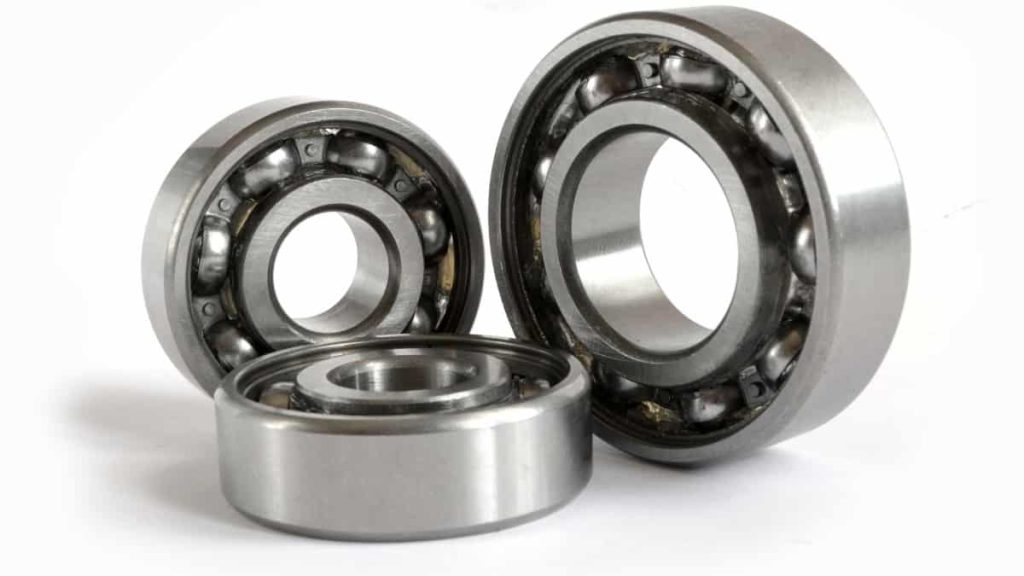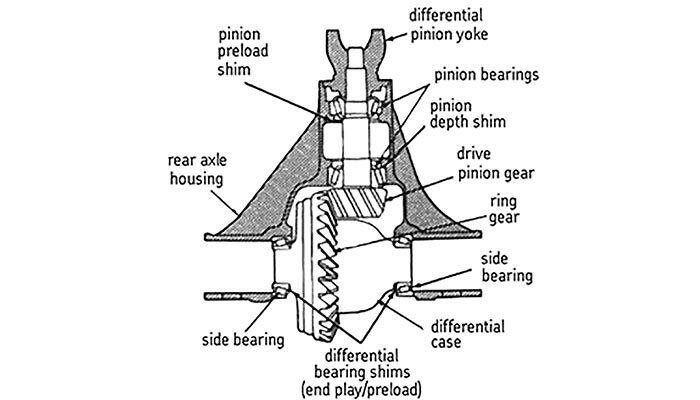How Long Can I Drive With a Pinion Bearing Noise
You can drive briefly with pinion bearing noise but it’s risky and can lead to major damage. Pinion bearing noise indicates potential failure, so have it inspected immediately by a mechanic.
Ignoring the noise can result in further damage to the differential components and potentially leave you stranded on the road. Timely addressing the issue will ensure safe and smooth driving, preventing expensive repairs down the line and maintaining the overall health of your vehicle.
Trusting a professional to diagnose and fix the problem promptly will keep you driving with peace of mind.
The Importance Of Pinion Bearings
What Are Pinion Bearings?
Pinion bearings are a crucial component of a vehicle’s differential and transmission system. These bearings provide support and allow the pinion gear to smoothly rotate, transmitting power from the engine to the wheels.
Why Are Pinion Bearings Important?
Pinion bearings play a pivotal role in maintaining the integrity and functionality of the entire drivetrain. Properly functioning pinion bearings reduce friction, minimize wear and tear, and ensure the smooth transfer of power, contributing to the overall performance and longevity of the vehicle.

Credit: carspecmn.com
Identifying Pinion Bearing Noise
Pinion bearing noise can be a concerning issue for drivers, but being able to identify it early on can prevent further damage to your vehicle. By understanding what pinion bearing noise sounds like and how to confirm if it’s the cause of the noise, you can address the issue promptly.
What Does Pinion Bearing Noise Sound Like?
Pinion bearing noise typically manifests as a whirring or rumbling sound that is more pronounced at higher speeds.
How To Confirm If It’s A Pinion Bearing Noise
- Listen for the noise while driving, paying attention to any changes in intensity.
- Inspect the area around the pinion gear for any visible signs of wear or damage.
- Consult a professional mechanic to perform a thorough diagnosis and confirm the issue.
Potential Risks Of Driving With Pinion Bearing Noise
Driving with pinion bearing noise can lead to some serious consequences that you should be aware of.
Unforeseen Breakdowns And Costly Repairs
- Mechanical failures can occur unexpectedly
- Ignoring the noise may result in costly repairs
Compromised Handling And Safety Issues
- Handling may become unpredictable
- Decreased safety on the road

Credit: www.carrepairadelaidesa.com.au
Factors That Impact The Driveability With Pinion Bearing Noise
Factors that Impact the Driveability with Pinion Bearing Noise
Severity And Intensity Of The Noise
The severity and intensity of the pinion bearing noise play a crucial role in determining how long you can continue driving with it. Loud, consistent noise indicates a more serious issue and requires immediate attention to prevent further damage to the drivetrain.
Driving Conditions And Duration
The driving conditions and duration also influence the driveability with pinion bearing noise. Extended driving at high speeds or towing heavy loads can accelerate the damage caused by the noisy bearing.
When To Seek Professional Help
If you start hearing pinion bearing noise while driving, it is recommended to seek professional help as soon as possible. Ignoring the issue may lead to further damage and potentially unsafe driving conditions.
Signs Indicating Immediate Attention Required
If you experience any of the following signs, it is crucial to seek immediate professional help for your pinion bearing noise:
- Loud grinding or growling noises coming from the rear of your vehicle
- Excessive vibration or shaking in the drivetrain
- Difficulty steering or controlling the vehicle
- Unusual tire wear
- Leaking differential fluid
Ignoring these signs and continuing to drive with a pinion bearing noise can lead to severe damage to your drivetrain and put your safety at risk.
Recommendations For Pinion Bearing Replacement
If you suspect a pinion bearing noise in your vehicle, it is essential to get it checked by a professional mechanic. Below are some recommendations for pinion bearing replacement:
- Find a reputable automotive repair shop that specializes in drivetrain repairs.
- Make an appointment for a thorough inspection to identify the exact cause of the noise.
- Once the issue is confirmed as a faulty pinion bearing, discuss the replacement options with the mechanic.
- Ask for a detailed estimate of the repair costs, including parts and labor.
- Consider the mechanic’s recommendations for the replacement of other related components, such as seals or bearings, to ensure a complete and long-lasting repair.
- Upon approval, schedule the repair at a convenient time.
- During the repair, ensure the mechanic uses high-quality replacement parts for the pinion bearing.
- After the replacement, test-drive the vehicle to verify that the noise has been eliminated.
- Maintain regular maintenance and inspections to prevent future issues with the pinion bearing or other drivetrain components.
By following these recommendations and seeking professional help promptly, you can address the pinion bearing noise in your vehicle and continue driving with confidence.

Credit: www.brakeandfrontend.com
Frequently Asked Questions For How Long Can I Drive With A Pinion Bearing Noise
What Happens If You Drive With A Bad Pinion Bearing?
Driving with a bad pinion bearing can cause noise, vibration, and damage to the differential. It may lead to more extensive and costly repairs if not addressed promptly. It’s essential to have it checked and replaced by a mechanic to ensure safe and efficient driving.
What Happens If You Don’t Fix A Pinion Bearing?
Neglecting to fix a pinion bearing can lead to serious damage to your vehicle’s differential system. Ignoring it may result in loud noises, vibrations, and eventually complete failure of the differential assembly.
How Long Can I Drive With A Bad Differential Bearing?
Driving with a bad differential bearing can cause further damage. It is risky and unsafe. Get it fixed as soon as possible.
What Does A Failing Pinion Bearing Sound Like?
A failing pinion bearing may produce a whirring or whining sound, especially during acceleration or deceleration. The noise may become more noticeable at higher speeds. It’s important to have the bearing inspected and replaced by a professional mechanic to prevent further damage to the vehicle’s differential system.
How Long Can I Drive With A Pinion Bearing Noise?
Driving with a pinion bearing noise is not recommended as it can lead to serious damage to the drivetrain. It is best to address the issue promptly to avoid further complications.
How Does A Pinion Bearing Noise Sound Like?
A pinion bearing noise can manifest as a whining or grinding sound coming from the rear of the vehicle. If you hear these noises, it’s important to get it checked by a professional mechanic.
What Causes A Pinion Bearing Noise?
A pinion bearing noise is typically caused by wear and tear or lack of lubrication in the pinion bearing. Other factors such as faulty installation or damaged components can also contribute to the noise.
Conclusion
In the event of pinion bearing noise, quick action is crucial. Ignoring the issue may lead to more serious and costly problems. It’s best to address the problem as soon as possible to ensure safe and efficient driving. Regular maintenance and timely repairs can help avoid further damage and prolong the lifespan of your vehicle.

